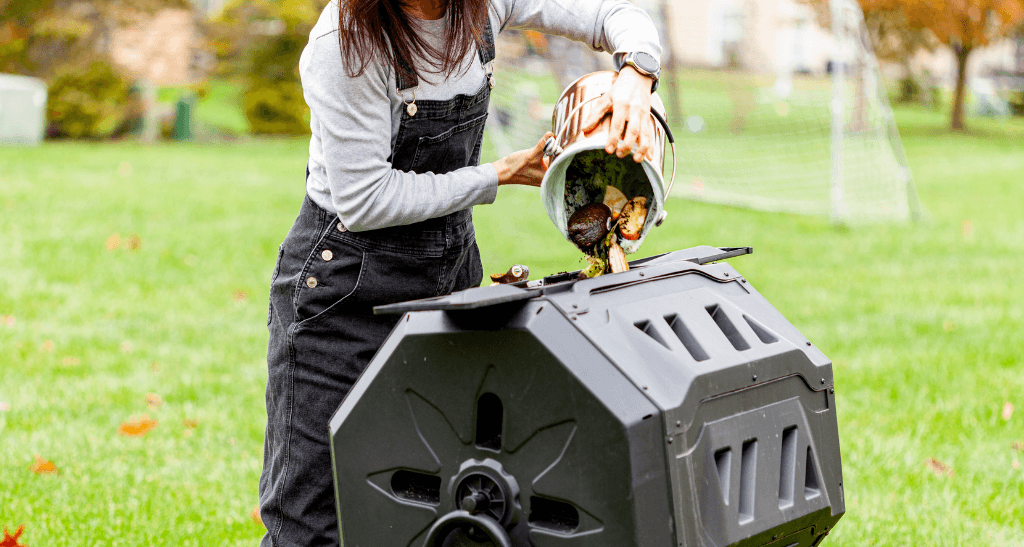The holidays are a time to get together with loved ones to make memories and reflect on another year gone by. As the excitement of the holidays grows, it is easy to feel the need to go overboard with our spending, which is hard on the wallet and the environment too. There is more waste produced during the holiday season than at any other time of the year. When it comes to the holidays, we often find ourselves wondering “is this recyclable?” Instead of guessing, we encourage you to do the research within your municipality.
We can all make simple and easy changes to drastically reduce the amount of waste we produce during the holidays. As we lean towards a more environmentally conscious way of life, we have a few tips on how to achieve eco-friendly festivities.
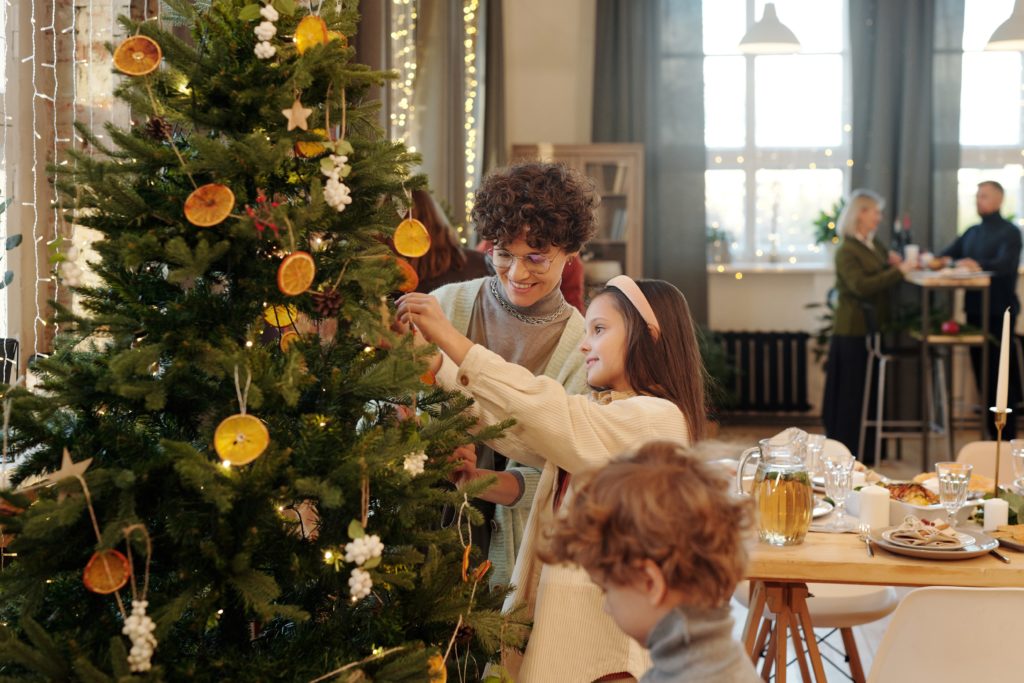
Gifting: Quality over Quantity
When buying gifts for loved ones, put the time into picking quality items that will stand the test of time, reducing the likelihood of gifts going to waste. Consider local or fair-trade items that in most cases contain less plastic and unnecessary packaging. Instead of buying multiple gifts, we suggest focusing on purchasing one gift that will be well-used and loved.
Gifting experiences reduces the need for physical resources and will bring people together to create the most meaningful gift of all, memories. Gifting an experience can be anything from concert tickets, gift cards to restaurants, a homemade coupon book or even a class or workshop to learn something new.
 Have a special skill or talent? Try making a few homemade gifts this year. It is often said that homemade gifts are the most meaningful of all!
Have a special skill or talent? Try making a few homemade gifts this year. It is often said that homemade gifts are the most meaningful of all!
Decorations
Decorating for Christmas inside and out is one of the parts of the season we all look forward to. String lights are a staple of the holiday season, depending on what type you are using, they can impact both the environment and your utility bill. When it comes to holiday lights, consider LED as they use up to 95% less energy than traditional bulbs and will cost you on average 80% less than normal light bulbs.
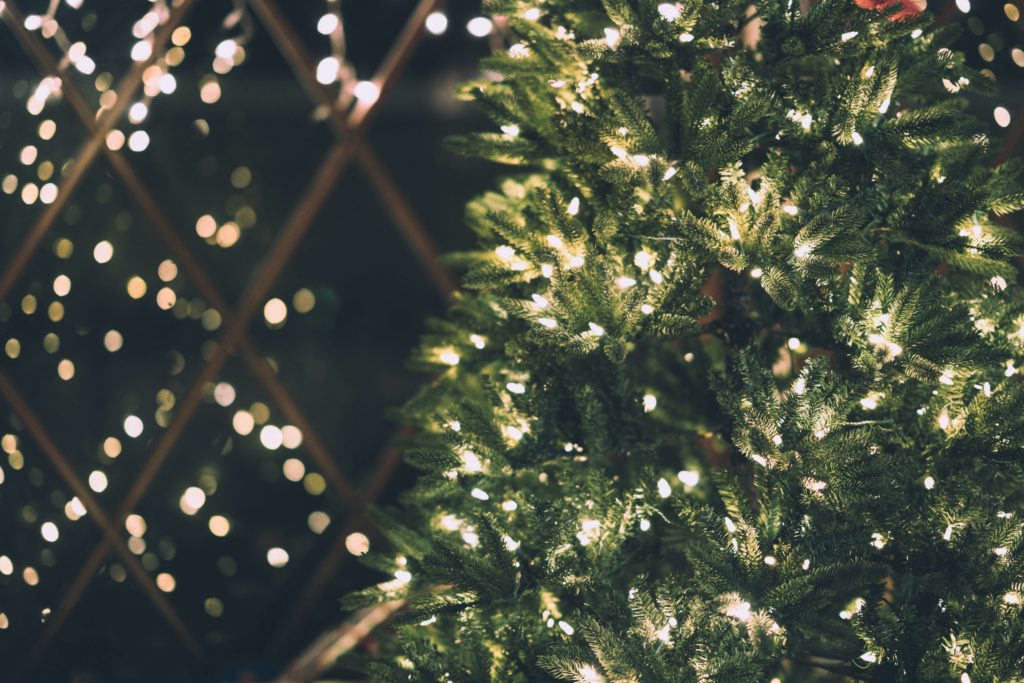 Many decorations can be homemade, and Pinterest is full of DIY decorations to make. Natural elements such as twigs, branches, berries, and pinecones can all be turned into beautiful décor (plus it’s free!) The dried orange garland is a tried-and-true favourite that always is sure to impress. If you must buy holiday décor, check out your local thrift store before heading to the stores. If you must purchase new, try to find items that contain less plastic, and will last for many years to come. For example, garlands made from fabric are much more durable and sustainable than ones made of plastics and will stand the test of time.
Many decorations can be homemade, and Pinterest is full of DIY decorations to make. Natural elements such as twigs, branches, berries, and pinecones can all be turned into beautiful décor (plus it’s free!) The dried orange garland is a tried-and-true favourite that always is sure to impress. If you must buy holiday décor, check out your local thrift store before heading to the stores. If you must purchase new, try to find items that contain less plastic, and will last for many years to come. For example, garlands made from fabric are much more durable and sustainable than ones made of plastics and will stand the test of time.
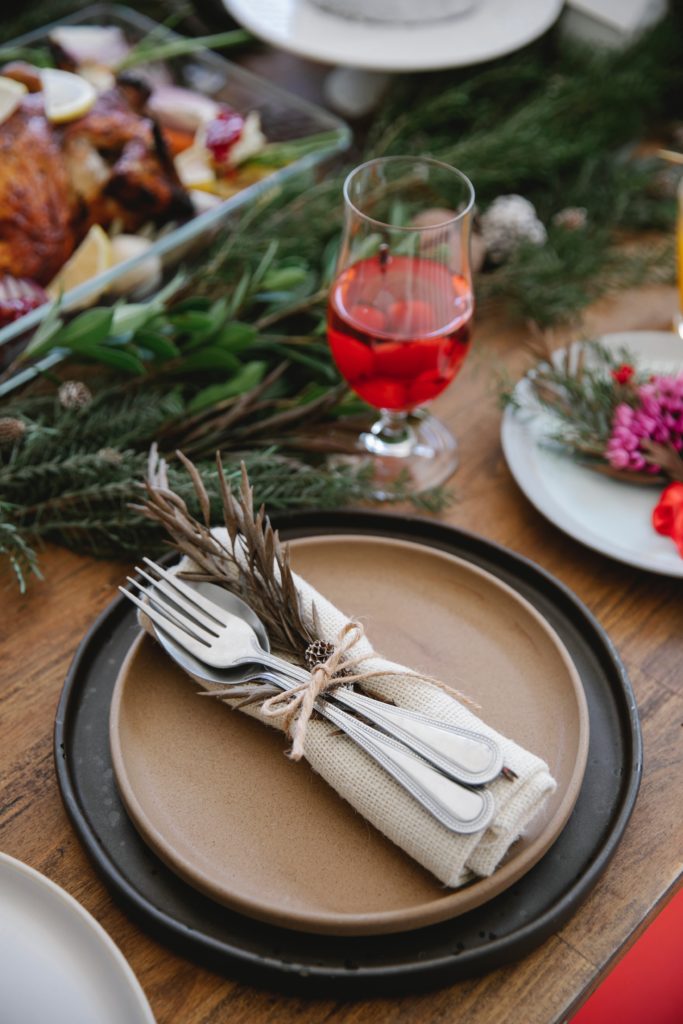
Wrapping
Now that we have touched on the decorations, and gifts, let’s discuss wrapping paper. The average person often thinks that wrapping paper is recyclable, but it all depends on the type of paper you are using. If you must use wrapping paper, try to find a recyclable option such as Kraft paper. Sadly, over 540,000 tonnes of wrapping paper end up in the landfill after the holidays. There are many sustainable and creative ways to wrap your gifts. Some of our favourites include:
- old newspaper or magazine pages
- a holiday themed tea towel
- A thrifted basket or box to use again
- Tote bag
- Scarves or worn fabrics
As for the gifts you are receiving, try to be careful how you open them, as you may be able to salvage bows or wrapping paper to reuse for next year.
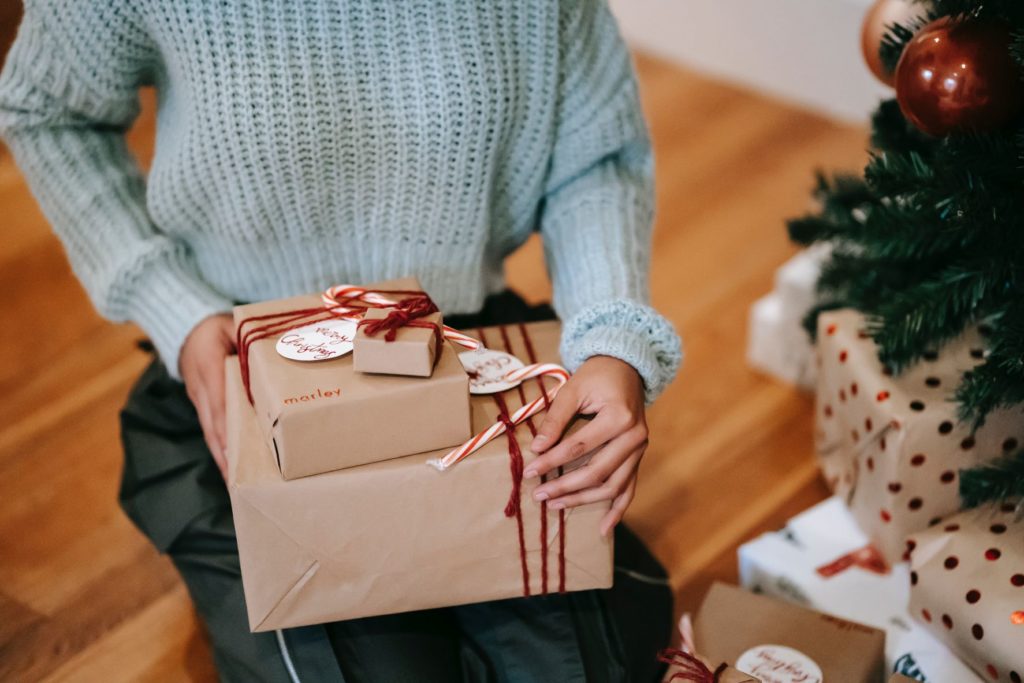
Food
Sharing a meal with friends and family over the holidays is one of the best parts of the season. We can continue to enjoy this tradition while limiting the amount of food we are wasting. Before your holiday meal, try to plan out how much food you will need to make for each person. Consider buying local and seasonal ingredients.
Encourage your guests to bring their own reusable containers so they can take some leftovers home. If you do happen to have leftovers, get creative with how you use them. A quick google search is all it takes to find a new way to revamp those leftovers!
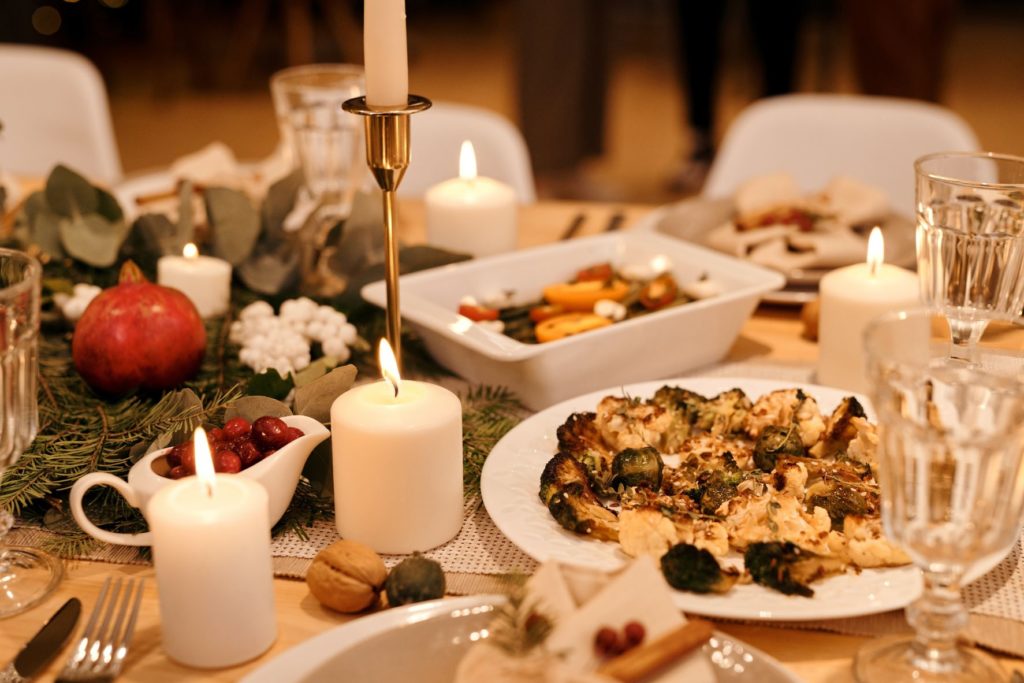
In Conclusion
We all need festive cheer and time with loved ones, especially after a tough last couple of years. However, it is important to keep in mind the long-term environmental impact of the season and we encourage you to incorporate more sustainable traditions. The more we are mindful now, the less the next generation must compromise on their holidays. Teaching the next generations, the importance of quality over quantity is incredibly important. Shifting our focus this holiday season will result in less spending, less stress, and a more sustainable future.
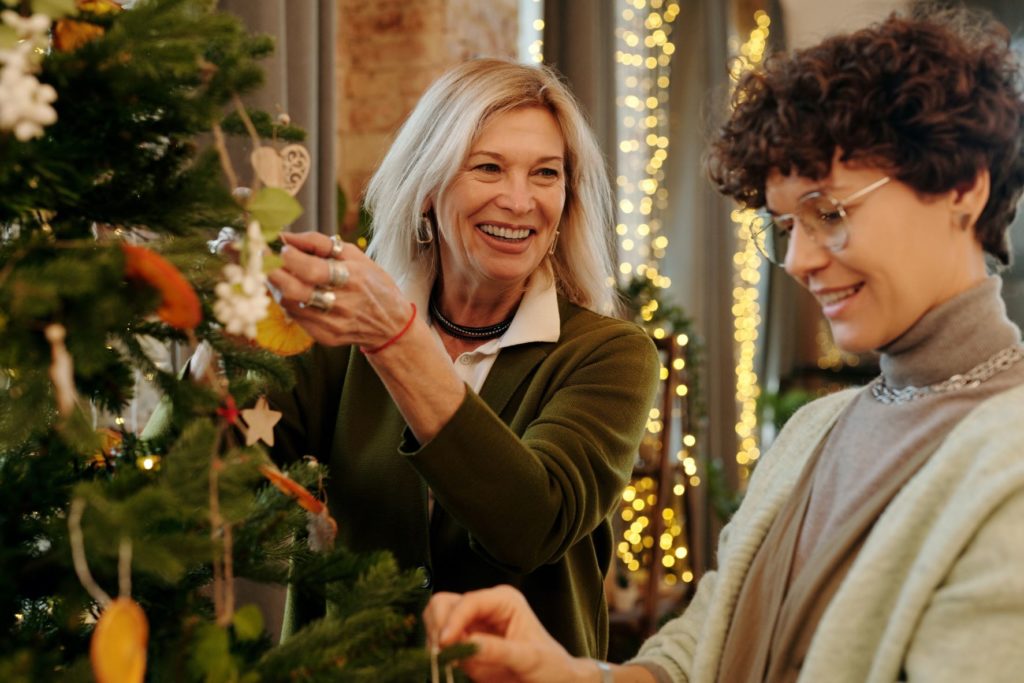
We encourage you to learn more!



